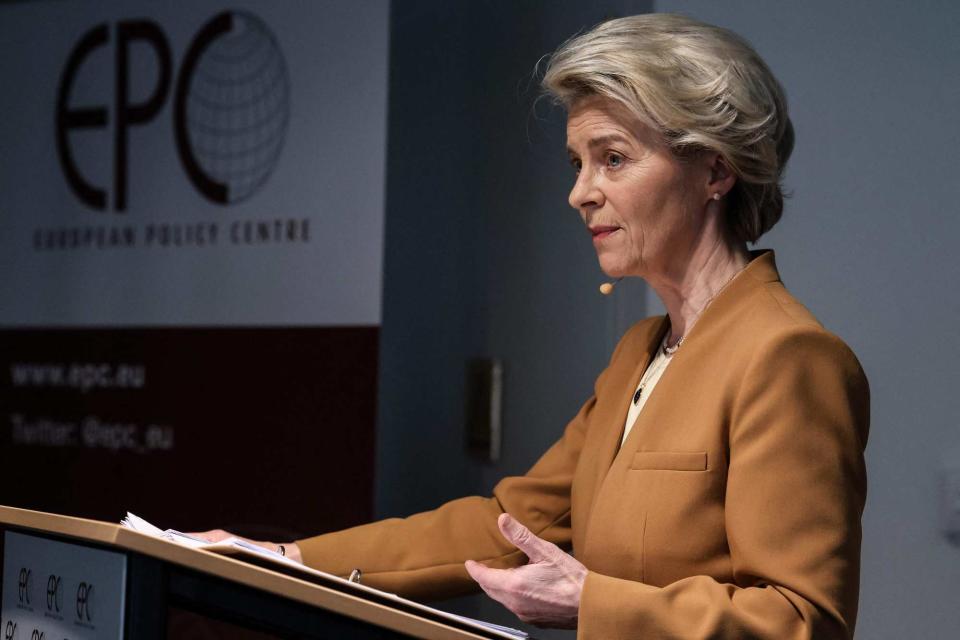De-risk? Decouple? A Chinese official says it's just the West disrupting supply chains

The West's push for "de-risking" or "decoupling" from China is just an excuse to disrupt normal operations of global supply chains, a Beijing official told a finance conference in Egypt this week.
Wang Dongwei, China's vice-minister of finance, said that Beijing hoped to see a world with enhanced industrial global chains, which are "necessary for an open and inclusive global economy" - especially after the Covid-19 pandemic.
Instead, Wang said, the "actions of some countries" had thrown global industrial chains into disarray. In a veiled reference to the US and its European allies, Wang said the countries had weaponised the concept of national security and were misusing the idea of de-risking.
"We should firmly oppose such actions," Wang said on Tuesday during a panel at the Asian Infrastructure Investment Bank's annual meeting in Sharm el-Sheikh.
"We should strictly safeguard the safety and stability of the industrial and supply chains."

EU trade commissioner Valdis Dombrovskis delivering his speech at Tsinghua University in Beijing on Monday. Photo: Kinling Lo alt=EU trade commissioner Valdis Dombrovskis delivering his speech at Tsinghua University in Beijing on Monday. Photo: Kinling Lo>
Valdis Dombrovskis, the European Union's trade chief, said in a speech at Tsinghua University this week that the EU had been forced to take a hard look at its economic dependencies.
"Our answer is: economic diversification and de-risking," Dombrovskis said, stressing that the EU had no intention of decoupling from China.
"I understand that in China, de-risking is sometimes viewed as a synonym for 'protectionist' or 'China-sceptic'. Our strategy is not protectionist. And it is country-agnostic," he said.
Chinese officials say there is no difference between de-risking and decoupling and its foreign ministry responded sharply to Dombrovskis, saying that "China is not a source of risk, but a staunch force for preventing and defusing risks".
"To shut out China in the name of de-risking is to throw away opportunities, cooperation, stability and development," a ministry spokesperson said.
There has been a growing push from the US and its allies to cut reliance on China for critical products or supply chains. In just one example, Washington has banned US companies from doing business with Huawei Technologies and some other Chinese firms, claiming national security and foreign policy concerns.
Wang said that China had worked with various countries to develop an integrated infrastructure network that created stable and smooth supply chains.
He cited the China-Laos Railway, which he said had transformed the Southeast Asian nation from a landlocked to a land-linked country.
The World Bank, Wang said, projects that the railway, completed in 2021, would cut domestic transport costs in Laos by up to 40 per cent, helping to integrate Laos into the global supply chains.
Among the sectors the West seeks to reduce its reliance on China is critical minerals for energy transition metals - whose production and processing China dominates.
The US and its allies are backing the development of logistics corridors - including the recently announced India-Middle East-Europe Corridor.
Another is the Lobito Atlantic Railway Corridor - an open access rail line from Angola's Lobito Port on the Atlantic Ocean to its border with the Democratic Republic of the Congo, which the US is backing. When completed, it could ship minerals from resource-rich countries like the DRC and Zambia, key producers of cobalt and copper.
John Calabrese, a senior fellow at the Middle East Institute, noted that the term "de-risking" originated with European Commission President Ursula von der Leyen, who declared the EU's intention to decrease economic dependence on China.

European Commission President Ursula von der Leyen during her speech on EU-China relations that coined the term "de-risking" at the European Policy Centre in Brussels on March 30, 2023. Photo: AFP alt=European Commission President Ursula von der Leyen during her speech on EU-China relations that coined the term "de-risking" at the European Policy Centre in Brussels on March 30, 2023. Photo: AFP>
In April, the White House picked up the term and unveiled an "small-yard, high-fence" approach - presumably aimed at conveying to its allies and partners that not everything China does is malign or menacing, Calabrese said.
"The pressure from the West, including US restrictions on semiconductor chips and investment, almost certainly has given Beijing a case of the jitters," Calabrese said.
Raj Bhala, an international trade expert at the University of Kansas law school, agreed that "de-risking" might be a rhetorical shift but is really just another way to say "decoupling".
"The truth is that decoupling is happening, to one degree or another, depending on the industry or service sector involved," Bhala said.
"Whatever goodwill de-risking may connote, in terms of hoping for continued dialogue, it means purging cross-border supply chains of Chinese-origin content, especially on items deemed to be of strategic importance - and that's decoupling."
- Questions and Answers
- Opinion
- Story/Motivational/Inspiring
- Technology
- Art
- Causes
- Crafts
- Dance
- Drinks
- Film/Movie
- Fitness
- Food
- Games
- Gardening
- Health
- Home
- Literature
- Music
- Networking
- Other
- Party
- Religion
- Shopping
- Sports
- Theater
- Wellness
- News
- Culture
- War machines and policy

